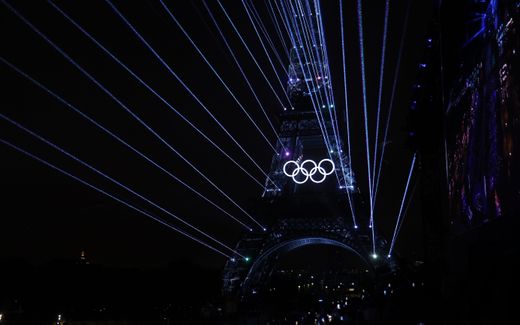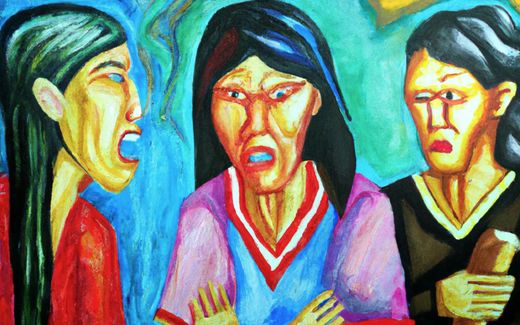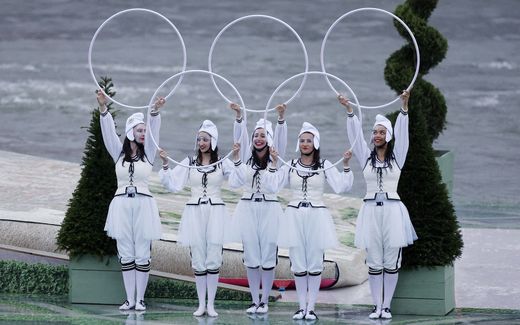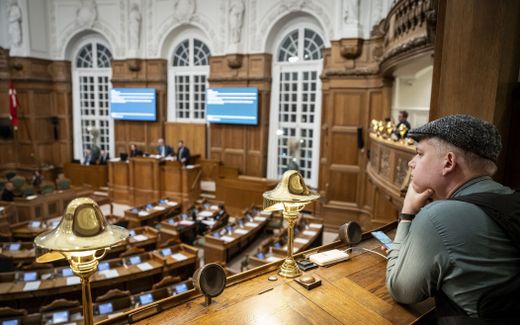Ten years later, Charlie Hebdo’s comics are still sacrilegious toward the sacred
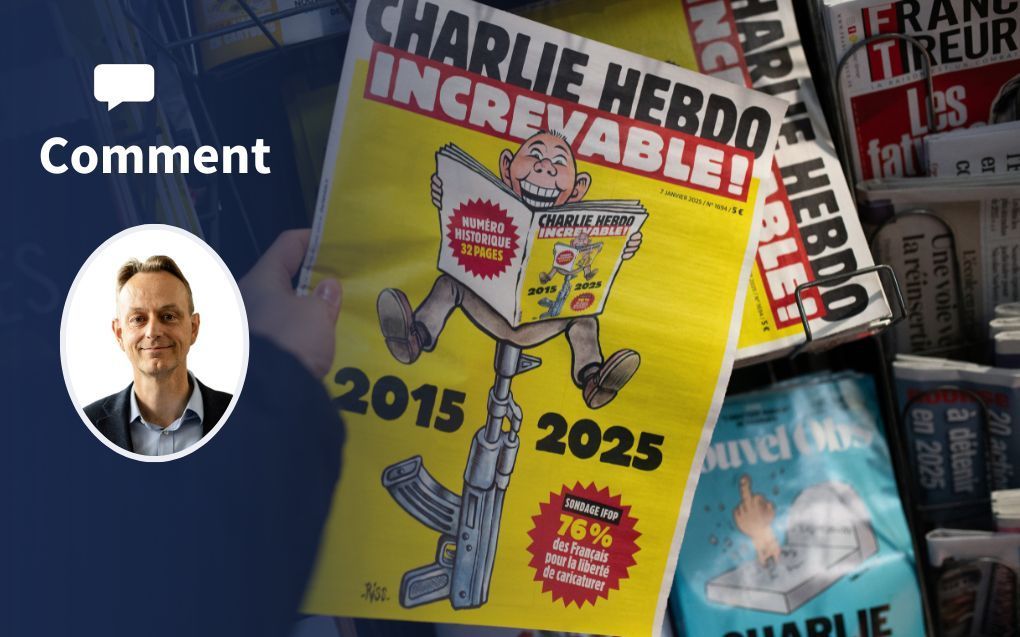
The newest Charlie Hebdo in the shop. Photo AFP, Martin Lelievre; Canva
Opinion
Insulting cartoons again. Always insulting. Ten years after the dreadful attacks on Charlie Hebdo, the magazine again keeps doing the same thing. It gives the impression that they have not learned that there are other ways to honour the Western civilisation.
I know it sounds silly, but I still know where I was when it happened. I was sick at home for a few days when the alert came that there was an attack on Charlie Hebdo’s office in Paris. My colleagues at the newsroom of Reformatorisch Dagblad had to work extra hard because of my flu. And indeed, the incidents dominated the news for days and even weeks. Twelve people dead: what a nightmare!
Honestly, Charlie Hebdo was not a well-known title to me before that. And by reading about the backgrounds, I was not only shocked by the brutal violence used by the attackers. I was shocked too by the magazine’s policy.
Mocking everything sacred for somebody is mocking against everything transcendent in any culture. But if all transcendency goes, what is left of our culture at all?
Disaster
First of all, I am not defending violence. What happened in January 2015 was utterly wrong. Period. I think it is correct to remember this disaster today. And it is fine when leaders of all groups and directions pay respect to the twelve who died in this terrorist attack.
But that does not mean that Charlie Hebdo was on the right side. The magazine has a heritage of mocking everything sacred. Yes, not sacred to themselves –because nothing seems to be sacred for the atheists– but for others. By the way, is it in itself not childish to mock others and not be critical of yourself?
Of course, you have to be brave to insult Islam and the prophet Mohammed. It is safer to ridicule the God of the Bible and His Son Jesus. The Charlie Hebdo team has not been cowardly. They dared to look the lion in its mouth by publishing cartoons of Mohammed.
Tensions
But still, is it reasonable to insult others by mocking what is sacred for them? It is clear that Islam as a religion is a newcomer in Western Europe, and this has brought a lot of tension. We have to deal with this, but not in a way that is disrespectful toward each other.
I see the Western culture as shaped by Christian values. One of those values is respect. Each person is created by God Himself in His image. That implies that we have to treat each other as precious porcelain. Handle with care! That might not have such a direct effect as a bomb explosion, but it will do something. By listening to the other, you might hope for an invitation to tell your part of the story.
And what should we listen to, then? Well, let’s start with the sacred. Ask each other: What is holy for you? Does God have a Son? “Yes, He has, and His name is Jesus.” Now we are talking!
For Christians, expressing what is holy for them is not difficult. For atheists, this might be more complicated. Charlie Hebdo gives the impression that nothing is sacred at all.
By following media and politics in Western societies, you get the idea that one thing at least is sacred, and that is sexual identity. Well, let’s speak about that then. Did God create sexuality? “Oh yes, He did.” For what purpose? “To symbolise the reconciliation between the perfect God and the sinful man through Jesus Christ.” Uhm, say again. “Okay, let me show you Ephesians 5.” Do we mock somebody for his sexuality? It is better not to. We might warn and testify about something better, but not mock.
Style
The atheists from Charlie Hebdo have a different style. That is fine to me. But still, I think that our common European tradition points to another way to express our reservations about Muslim culture.
Listening to people from another civilisation opens windows. By doing that, we discover that respect for other creatures gives our culture something transcendent. Our Christian and Western backgrounds give us language and tools to look the other in the eyes. This, in turn, allows us to witness what we see as universal values.
To me, this makes the freedom of expression valuable. This is a freedom that enriches us. It is a liberty that will help newcomers to integrate into our world. You don’t have to give in here. You can still claim that Jesus is the Son of God, which is difficult for Muslims to accept. But you say it in such a way that it does not provoke aversion in the other person. On the contrary, you say it with the hope that the other person will even start to believe it.
Publishing mocking cartoons has nothing to do with seeking the other. It does not contribute to your own culture either. It is just burping right in strangers’ faces. It is rude and boorish.
Burping might technically fall under freedom of expression, but this is not the way freedom is meant.
In the context of the Muslim terrorist attacks on the West and the Mohammed cartoons, there was a debate whether the right to insult should be part of the freedom of expression. I have always found this a strange debate. This is quite a fundamentalist view of this freedom.
Our civilisation is not built upon mocking and insult. Even if we had the (legal) right to insult, I would teach my children that it is not moral to make use of that right.
Related Articles


